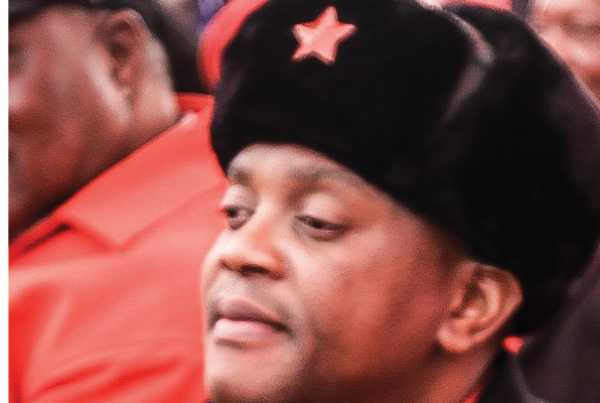Botsalo Ntuane: messiah or a pariah for BDP?
He came, he saw, he conquered! That is how best to capture Botsalo Ntuane’s political fortunes after his inglorious return to the Botswana Democratic Party (BDP). After pulling the ‘prodigal son’ stunt which was mostly informed by his perilous view of the future of Botswana’s opposition politics, he has now reincarnated as the centre of political power in the BDP.
As things stand, he is more than just a Secretary General. He comes across as the embodiment of everything BDP. He is by far the last man standing in fierce defence of the BDP even if at times it borders on pathological proportions. His political visibility and activism is by far comparable to none in the BDP. It even overshadows that of his party President and Chairman respectively. As a result of this political ‘hyper-activeness,’ Ntuane has accrued substantial political capital that makes him a political asset to the BDP. But can this prodigal son come to be the messiah of the BDP going into 2019, or like many before, is he going to end up a pariah? Ntuane is an orator and writer par excellence. His linguistic spins and acrobatics can only be equalled by that of Squealer, who was credited with his rare ability of painting paradise out of hell in George Orwell’s Animal Farm.
It therefore, does not come as a surprise that his reformist agenda is resonating with many party followers and earning him almost a messianic status. This is so because his open calls for reform is not only alien to the BDP culture but it is a somehow revolutionary. His reformist agenda appears to be a breath of fresh ideas in a tense and desperate political situation. In this context, Ntuane’s political reforms come not only as political prescription for a bedridden patient but also as a survival manual for the BDP. Although the 22 reform points are creatively written, nevertheless like the Communist Manifesto, they raise more questions than answers, particularly on two key issues; applicability and intention.
That is, to what extent are these reforms applicable in assisting the BDP retain power in 2019 and beyond? Let us take for example his proposition on party-government relations where he calls for the party to “reclaim its authority over government. The party must lead government and not be subordinate as is the case presently.” Although this Chinese Communist Party inspired model of government-party relations sounds ideal, it must be understood that the bureaucratic and internal processes of Tsholetsa House and those of government are wide apart. Unlike the party, the government is an all-inclusive macro-structure that caters for wide and diverse interests therefore, to suggest that a political party must be elevated over government is a recipe for disaster to say the least.
What Ntuane is suggesting is not entirely new, Saddam Hussein tried it with his Ba’ath Party and ended up dragging Iraq in a vicious circle of violence. I therefore, do not see how this proposed model can be practical and applicable in our political bureaucracy without risking isolating other key stakeholders such as opposition parties and non-state actors.
The other issue is to critically look at the intended objectives of the reforms. Firstly, let us be reminded that politicians are not like philanthropists. They do not run charities. There is always an expected return in one way or the other which is perfectly normal. My point, what does Ntuane expect in the post-reform political dispensation, I doubt he would want to come up with reforms and stand aside as they are implemented. It is perfectly normal that he would want to be in the thick and thin of things to ensure they are implemented as he envisioned them. Power! Secondly, it would be insufficient and unfair to analyse Ntuane’s agenda outside the context of BDP’s well-known group dynamics and group interests. Factionalism! The question that should be bothering his internal political adversaries should be, where is Daniel Kwelagobe (DK) in all this? But that is up to the BDP to decide whether Ntuane is, their political messiah or pariah. [email protected]






